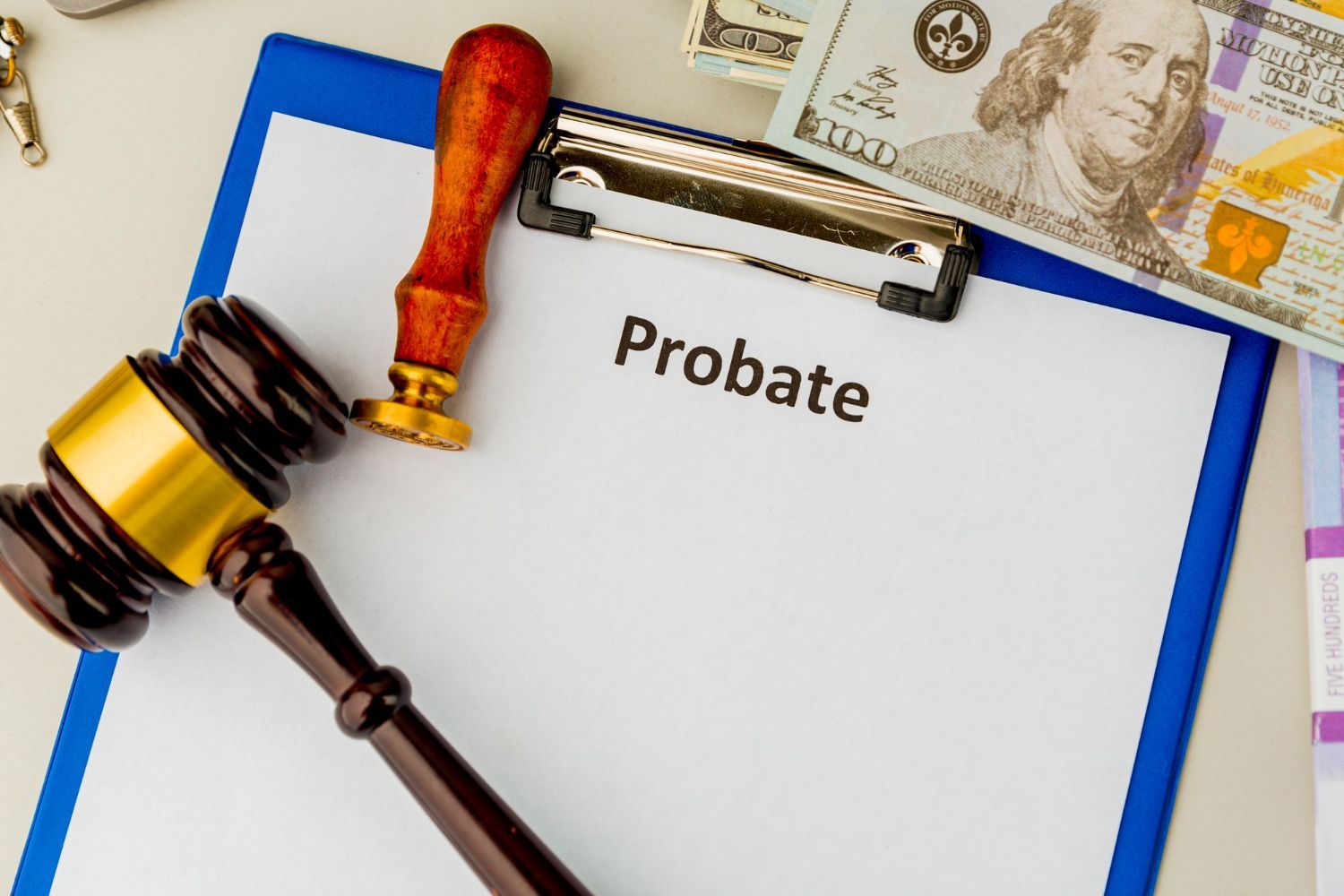Property Appraisal Requirements in Georgia Probate Cases
When someone passes away, their estate usually goes through a legal process called probate. During probate, a court helps make sure a person’s assets like houses or land are properly identified, valued, and transferred to the right people. One of the most important steps is figuring out how much the property is worth, and this is where appraisals come in. In Georgia, property appraisals play a big part in probate administration because they help the court, the executor, and the heirs understand the true value of what was left behind.
Whether it’s a house, a family-owned farm, or even a plot of undeveloped land, real property needs a reliable valuation before it can be distributed. This is not just about being fair. Appraisals can also impact things like taxes owed by the estate or how disagreements among heirs get sorted out. Getting the value right from the start keeps the process smoother and helps avoid hang-ups later on.
Understanding the Role of Property Appraisals in Georgia Probate
When a person dies and leaves behind real estate, that property becomes part of their estate. Unless that property was owned jointly with rights of survivorship or passed through a trust, it usually goes through probate. To do that, someone—usually the executor named in the will—has to put a value on it. That’s where a property appraisal comes into play.
A property appraisal is a professional estimate of the value of a piece of property based on its condition, location, market trends, and more. It’s not enough to guess or to go with whatever Zillow or a neighbor says. Courts in Georgia want proper documentation from a licensed appraiser. This valuation helps determine whether estate taxes might be due and guides the distribution of assets. If there’s more than one heir or beneficiary, knowing what the assets are worth can help keep things equal.
Here’s how appraisals typically affect the probate process:
- Help verify that the estate inventory is accurate and complete
- Provide a fair market value to satisfy court requirements
- Allow the executor to make informed choices about selling property or transferring ownership
- Set a reliable tax basis for heirs, especially when they later decide to sell the property
Imagine an estate that includes two properties—one in the city and one in a rural area. Without appraisals, there might be confusion or disagreements about which property is worth more. Having accurate values upfront avoids a lot of trouble as the estate moves through probate.
Probate judges don’t evaluate property themselves. They rely on appraisals to tell them what’s there and what it’s worth, which keeps the process fair for everyone involved. It also protects the executor from being accused of favoring one heir over another when it comes time to divide things up.
Property Appraisal Requirements in Georgia Probate Cases
Georgia law doesn't require an appraisal in every probate case, but when the estate includes real property—or if there's a chance of disagreement among heirs or creditors—it’s usually a smart step. Often, the court will expect to see an accurate and timely property valuation as part of the formal probate paperwork, especially when assets are being inventoried or sold.
Here’s how the appraisal process usually works in Georgia:
- The administrator or executor is generally responsible for ordering the appraisal
- The appraiser must be licensed and familiar with the local market
- The appraisal must reflect the fair market value as of the date of death
- It’s usually done early in the probate process during the inventory or accounting phase
Appraisals that are too old, incomplete, or based on online estimates might get rejected or challenged. To avoid delays, executors are encouraged to get a professional appraisal shortly after being appointed by the probate court. Timely action also helps if there's a need to sell property to pay off debts or distribute funds.
Probate courts want more than a vague valuation. They expect to see well-documented reports with clear support for how the figure was reached. This means details about comparable sales, local market conditions, and property condition should be included. That way, anyone reviewing the estate, whether it’s the court, an heir, or a creditor, can clearly understand the numbers. Mistakes in this phase can lead to delays or questions about how the estate is being handled, both of which can lead to legal problems. Being precise at this step sets the tone for the rest of the probate process.
Selecting a Qualified Property Appraiser
Finding the right property appraiser is an important step in the Georgia probate process. This person needs to give a fair and unbiased assessment of the property’s value. It may be tempting to go with someone recommended by a friend or a quick internet search, but there’s more to it than that. Probate courts tend to rely on appraisals that come from licensed, experienced professionals who know the rules and the local market.
While there’s no one-size-fits-all checklist, there are a few signs to look for when choosing an appraiser:
- Make sure they are certified or licensed in Georgia
- Look for experience with probate or estate work specifically
- Ask about turnaround times, especially if you’re trying to meet a deadline
- Check whether they include detailed written reports that document how values were determined
- Ask if they are familiar with the county where the property is located
A good appraiser will not only understand how to calculate market value, but they’ll know how to prepare the type of report the probate court will accept. For example, if a property is in Cobb County but the appraiser is only familiar with values in rural North Georgia, the final estimate may miss the mark. Experience in probate cases makes a difference because these reports often end up as part of court records and may be reviewed during asset disputes or tax filings.
The appraisal doesn’t just affect one part of probate. It can impact everything from the estate’s tax documents to final distributions. That’s why taking a little extra time upfront to vet an appraiser can save a lot of stress later.
Potential Challenges and How to Overcome Them
Even when everyone involved is on the same page, problems with appraisals can hold up the probate process. Sometimes heirs disagree about the valuation, or the appraiser’s report draws criticism because of missing details. Other times, delays happen when the executor puts off hiring someone or chooses an appraiser who isn't familiar with court requirements. These issues might seem small, but they can grow into serious roadblocks during probate administration.
Here are a few common hurdles and practical ways to deal with them:
1. Disagreements Among Heirs: If multiple beneficiaries don’t agree with the appraised value, it might lead to conflicts or even formal objections. To deal with this, make sure the appraiser is independent and recognized by the court, and be willing to get a second opinion if needed.
2. Missed Deadlines: Court deadlines can sneak up quickly. Executors should start the appraisal process early and follow up regularly to avoid paperwork piling up close to hearings.
3. Outdated Information: Values can shift suddenly in unpredictable markets. If the appraisal took place months ago and the property market changed, the court or heirs might request an updated valuation.
4. Poor Quality Reports: Some appraisals are missing comparables, lack descriptions, or include vague language. Make sure the appraiser is clear on what kind of report the court expects.
5. Problems With Unique Properties: Unusual homes or land, like historic properties, family farms, or mixed-use buildings, may be harder to appraise. In this case, look for an appraiser with specific experience handling that kind of property.
Appraisals that are done well, early, and clearly explained tend to face fewer objections. Keep communication open between the executor, beneficiaries, and legal counsel to stay ahead of any bumps in the process.
Securing Accurate Appraisals for Smooth Probate Administration
Property appraisals aren’t just a technical task. They set the foundation for everything that happens during probate. When the numbers are clear, timelines are followed, and decisions are well-documented, the process moves forward with less stress and fewer fights. Families already have a lot going on emotionally when settling someone’s estate, so cutting down on confusion is a big plus.
Having accurate values helps avoid common probate mistakes like unequal distributions, underpayment of taxes, or trouble transferring titles down the line. A clean and detailed appraisal makes each step after that more predictable. If something unexpected does come up later, there’s a solid record that shows how the property was valued right from the beginning.
The Georgia probate process has built-in rules that require fair handling of the estate. Property appraisals are a big part of that fairness. When executors approach the task with clarity, use the right professionals, and pay attention to timelines, the entire process tends to go more smoothly from start to finish.
Handling probate administration with confidence can make a big difference when it comes to settling an estate smoothly. If you're managing an estate in Georgia and want to ensure all aspects, including property appraisals, are properly addressed, consider exploring more about wills and trusts. McGinn Law provides comprehensive guidance to help you navigate these processes efficiently, ensuring peace of mind during a challenging time. For more detailed advice, learn more about
probate administration.





